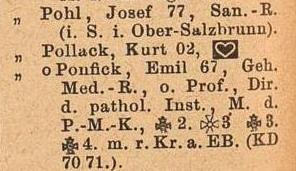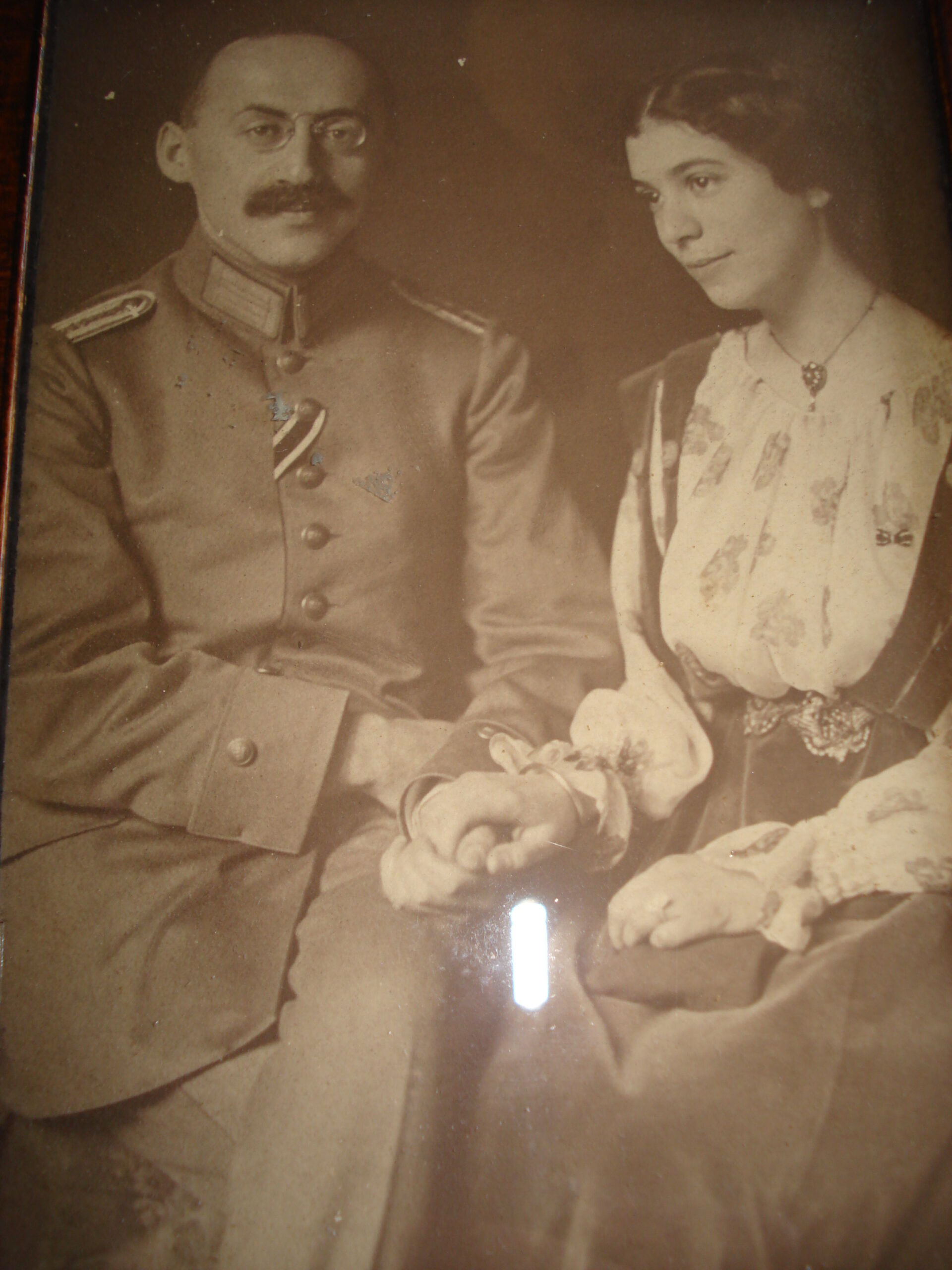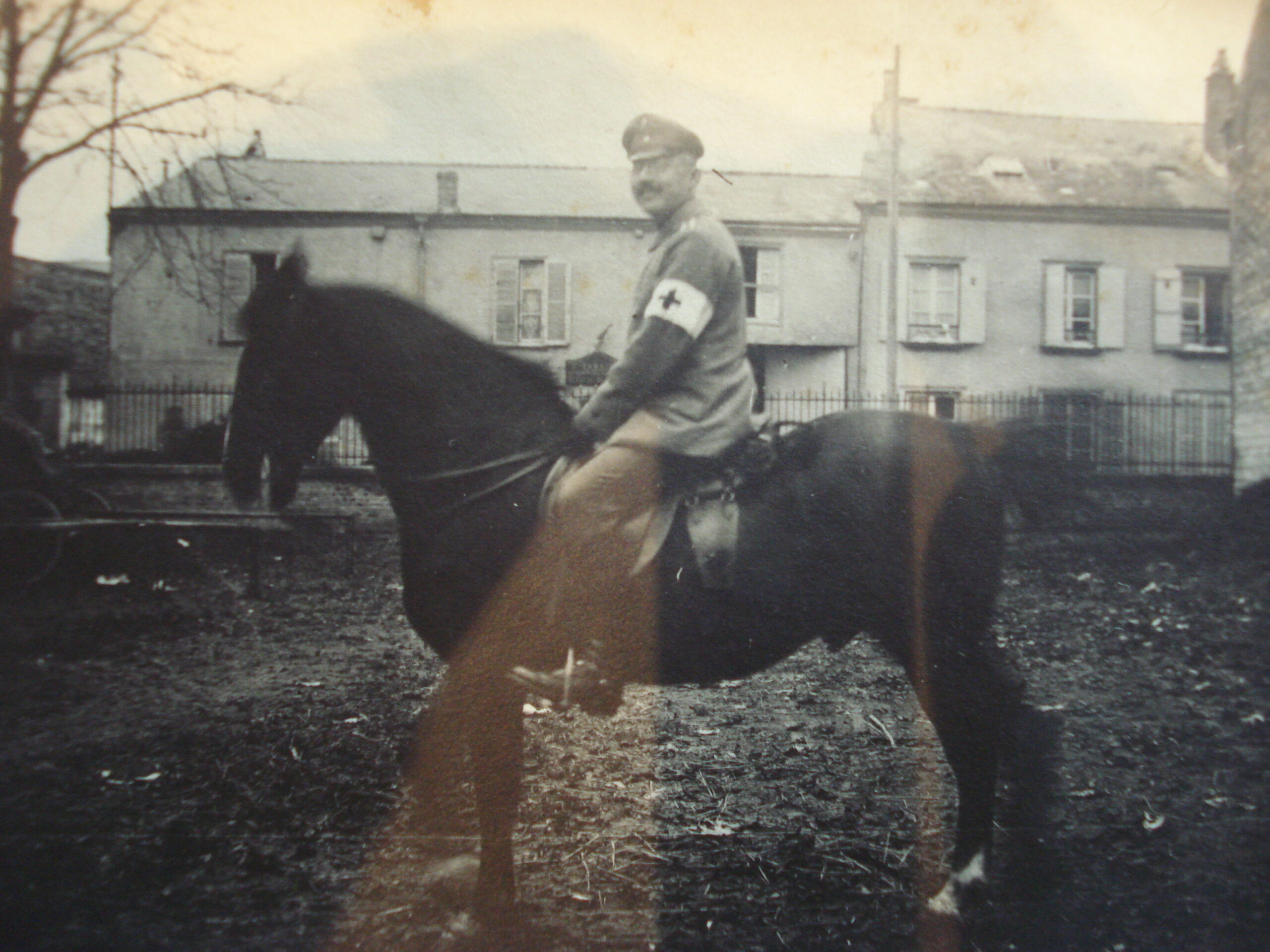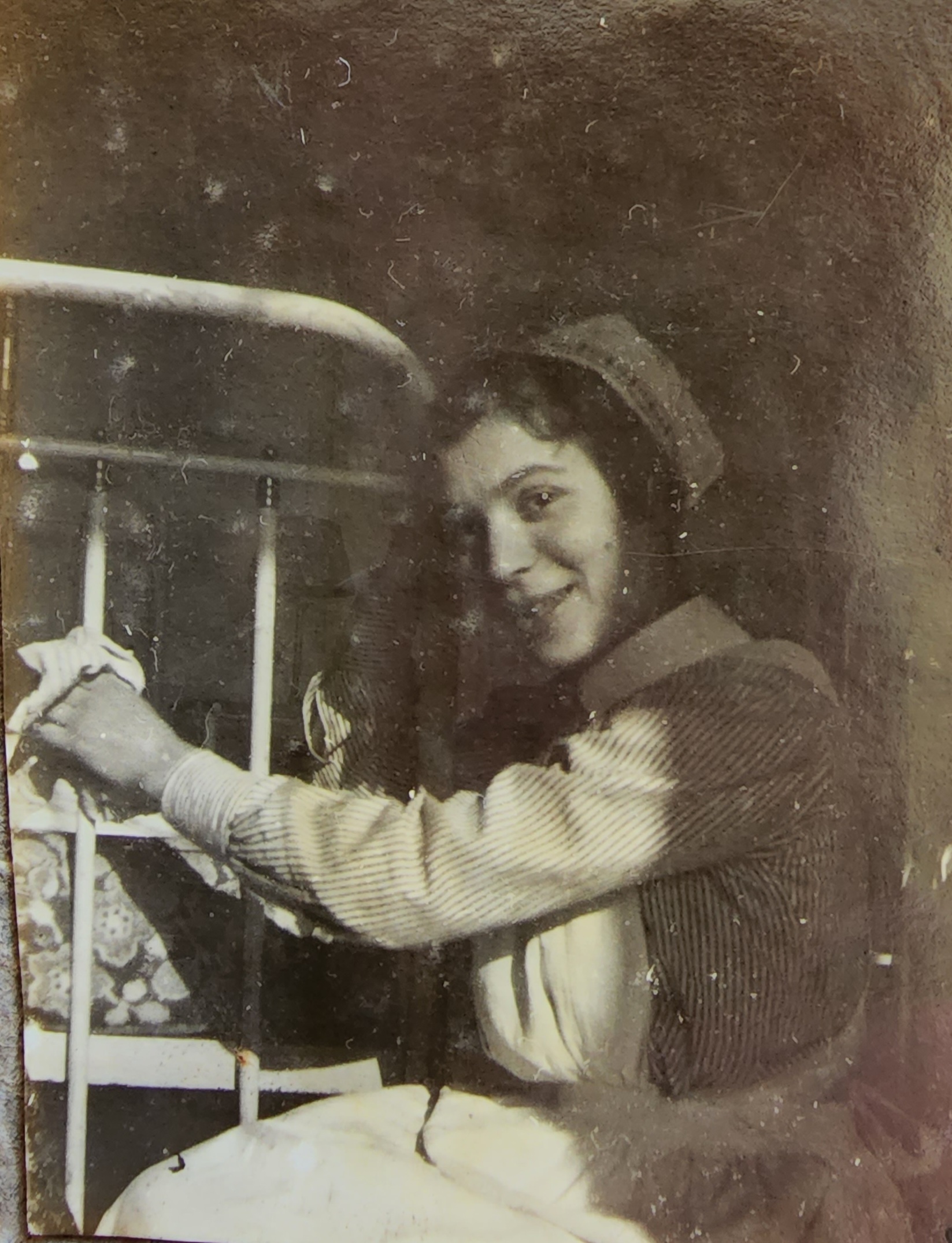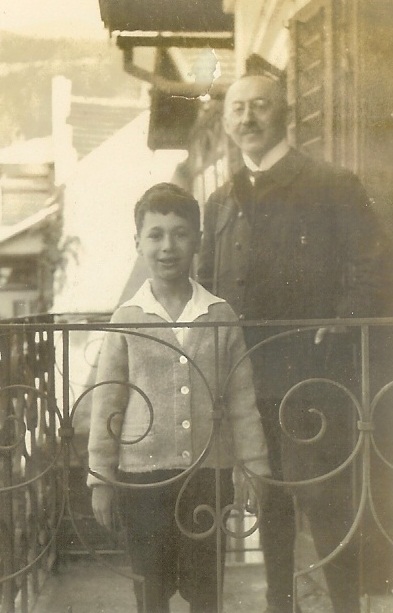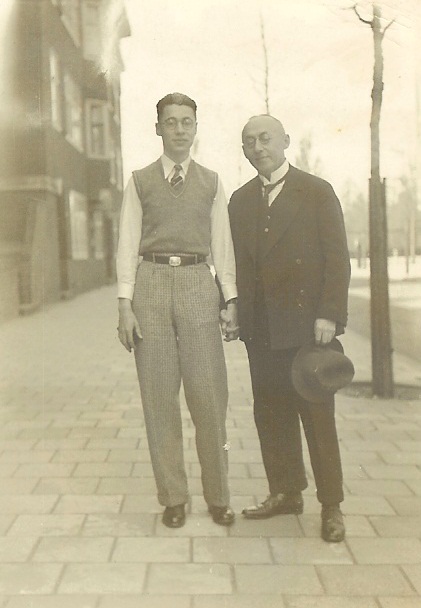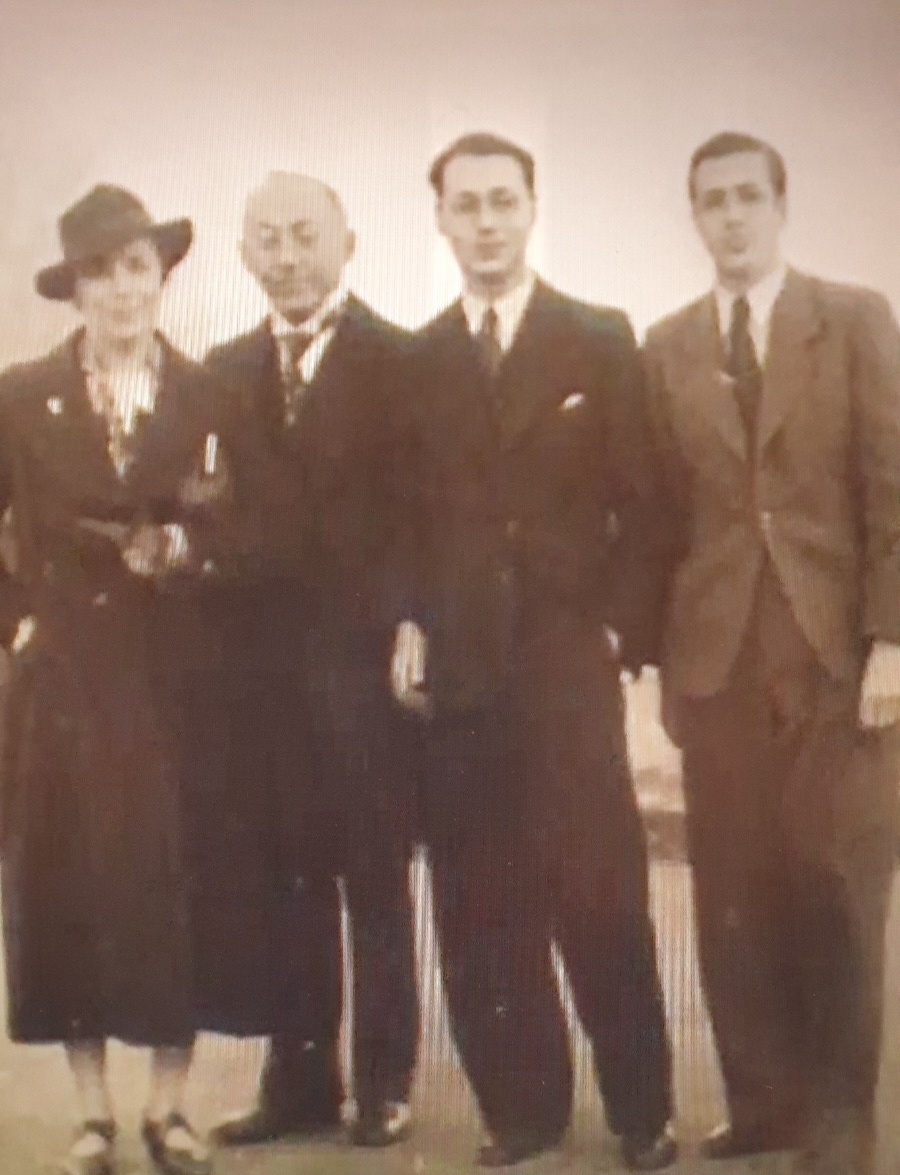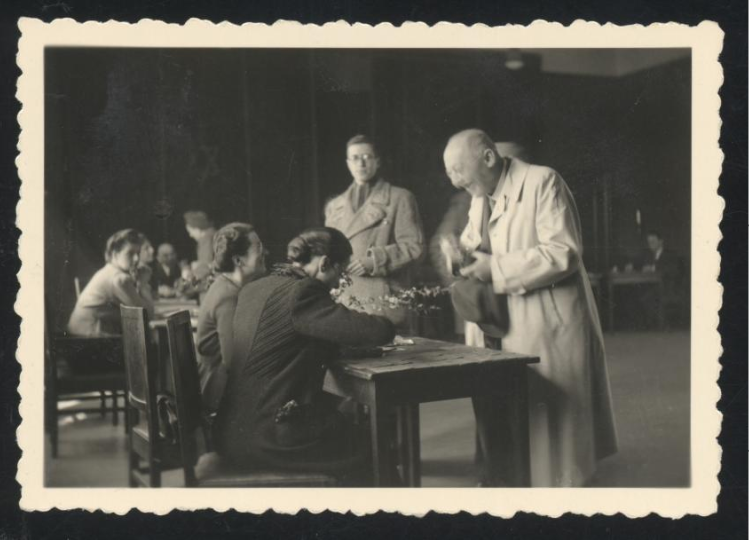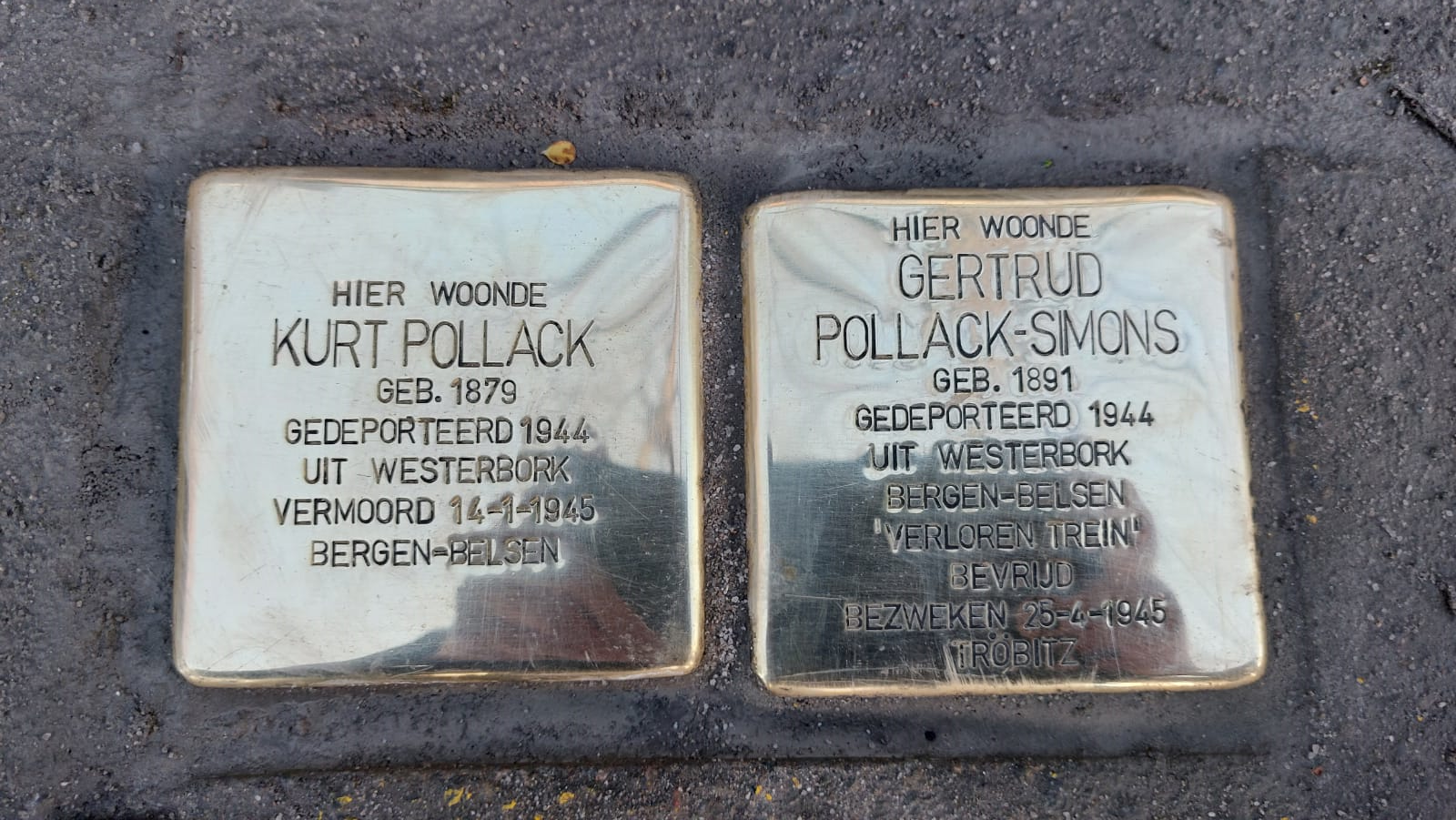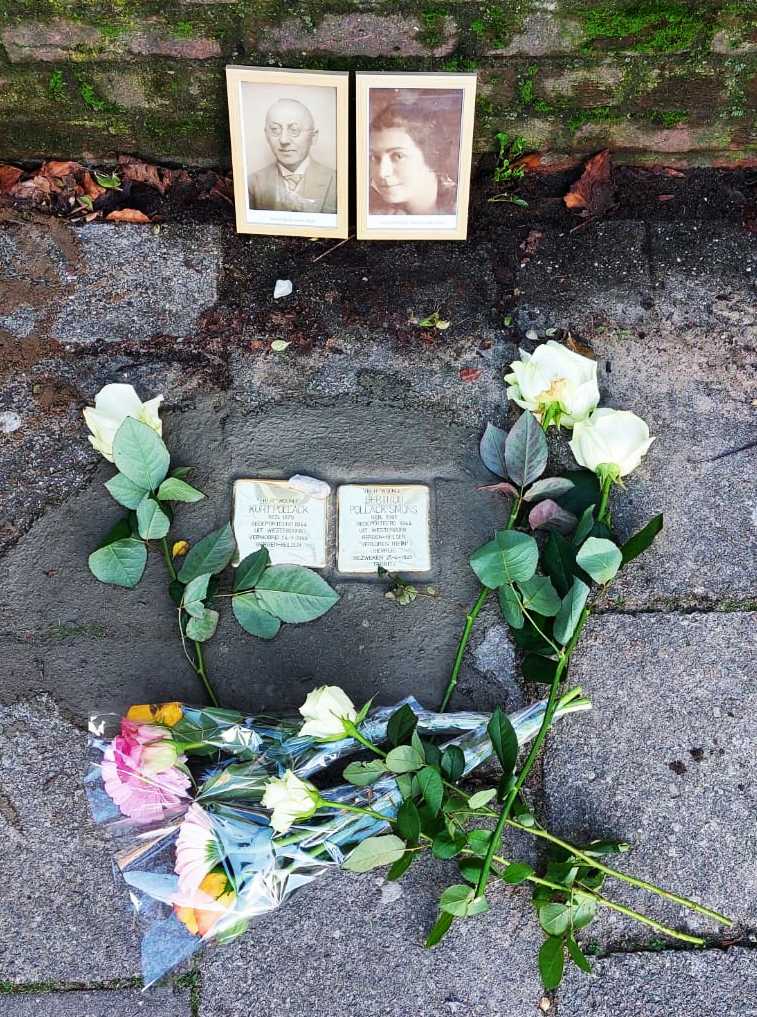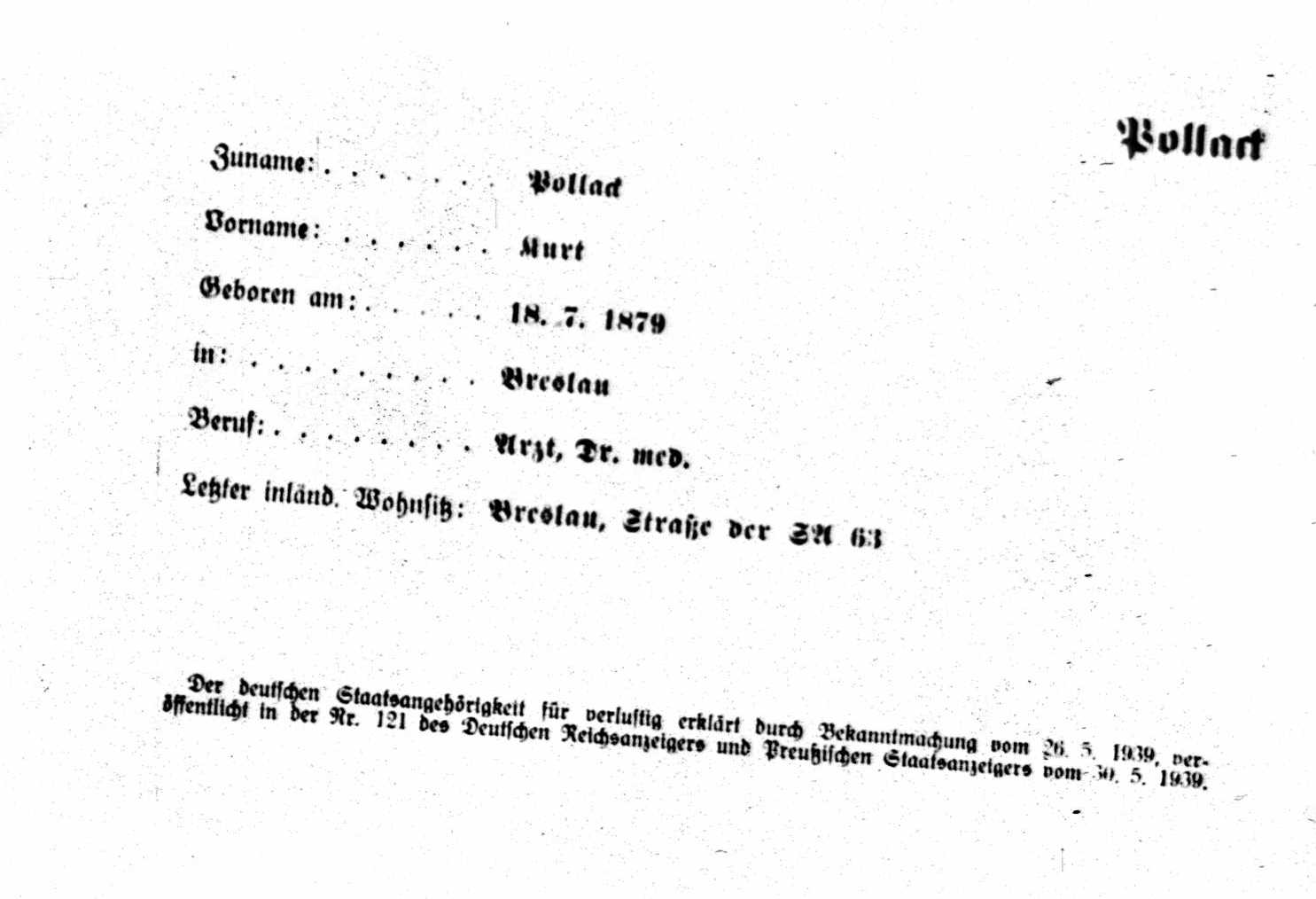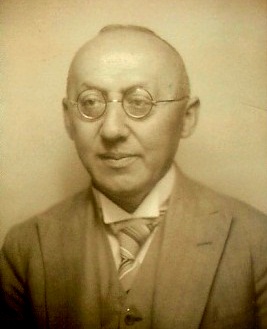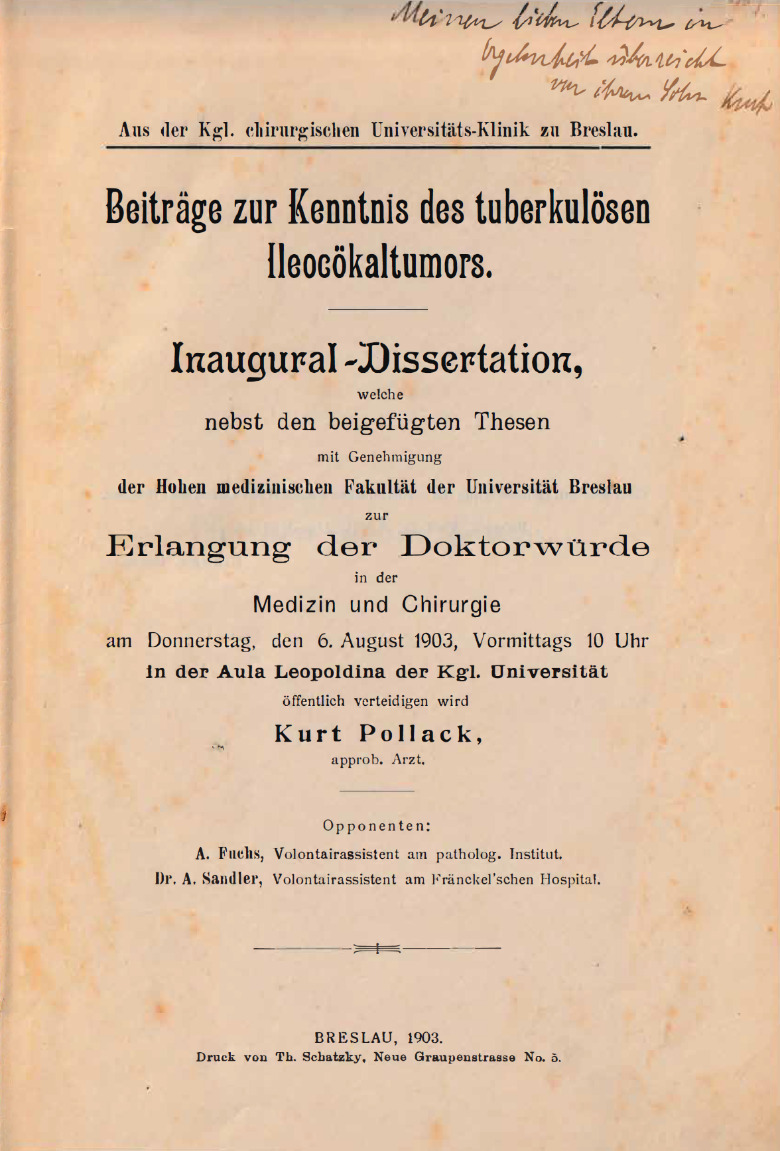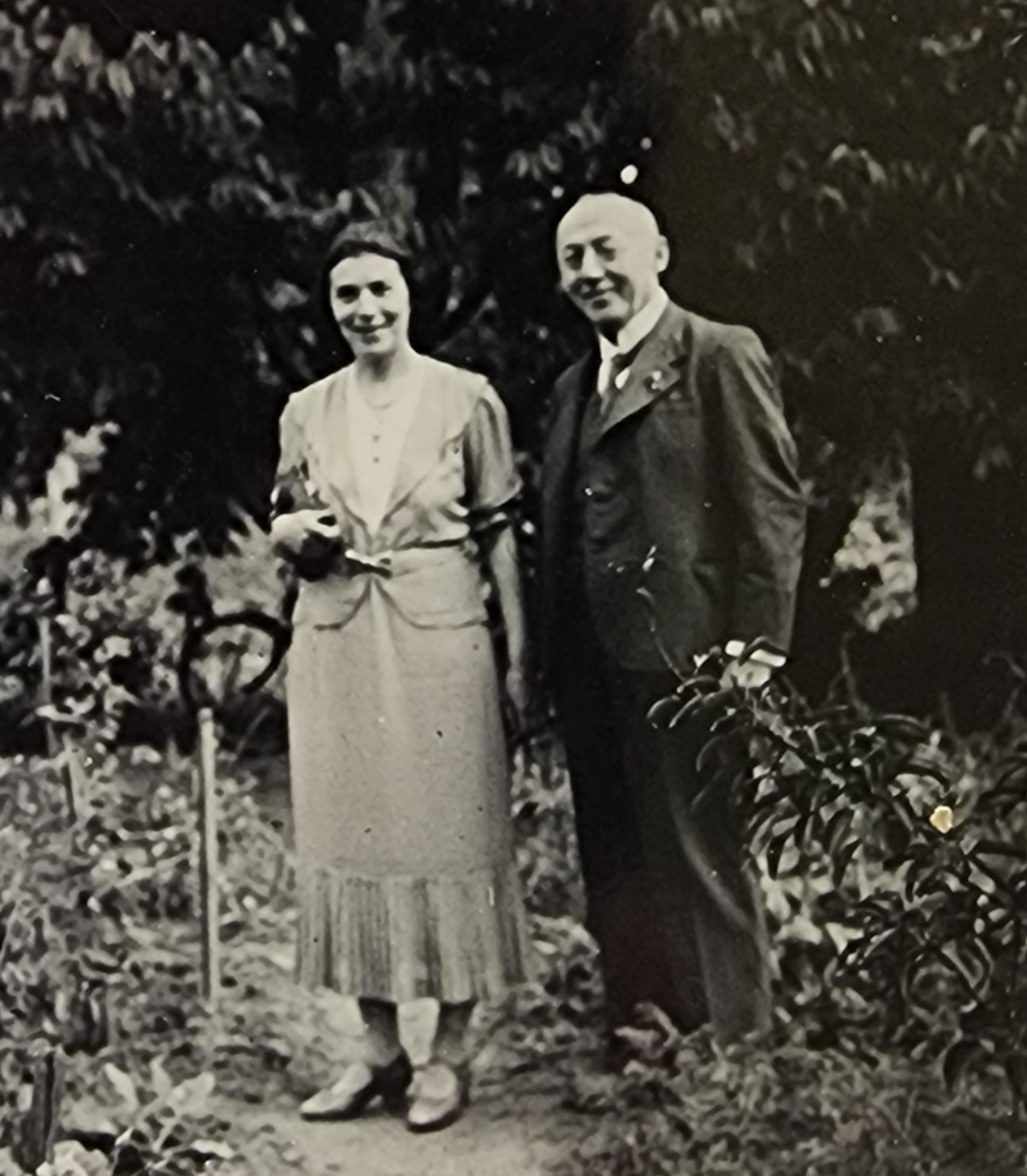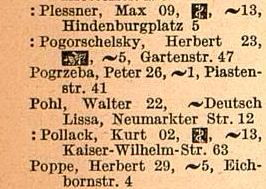Dr. med. Kurt Pollack
- Breslau/ now Wrocław, Poland, 18.07.1879
- Concentration camp Bergen-Belsen, 14.01.1945
- Member since 1926
- Breslau
- Specialist for inner medicine
“I, Kurt Pollack, was born in Breslau on 18 July 1879 as the son of the merchant Max Pollack and his wife Klara, née Kantorowicz. I received my school education in Breslau at the König Wilhelms-Gymnasium, which I entered at Easter 1885 and left at Easter 1897 with a school-leaving certificate. I devoted myself to the study of medicine, first in Freiburg (one semester), and since Michaelmas 1897 at the University of Breslau. I passed the preliminary medical examination in Breslau at Easter 1899, completed the state medical examination there on 7 February 1902 and received my license to practice medicine on 20 February 1902”, Kurt Pollack wrote in his dissertation.
Education and Places of Work
In August 1903, he received his doctorate cum laude from the University of Wroclaw with the thesis “Contributions to the knowledge of tuberculous ileocecal tumors”. He wrote his thesis at the University Surgical Clinic (headed by Johann von Mikulicz-Radecki). His thesis was supervised by Walther Kausch, the founder of pancreatic surgery, who later worked in Berlin.
Kurt Pollack subsequently trained in internal medicine with Ernst Neisser at the Medical Clinic of the Municipal Hospital in Szczecin. Together with Neisser, Kurt Pollack published on a new diagnostic method for obtaining cerebrospinal fluid.
In 1910, he is listed for the first time in the Reich Medical Calendar as a practicing physician for internal diseases in Breslau. He practiced here until his flight from Germany in the summer of 1938. He was the first doctor in Breslau to have an X-ray machine, which significantly expanded his diagnostic spectrum.
Kurt Pollack took an active part in the First World War as a medical officer.
In March 1917, he married Gertrud Simons, who was born in Berlin in 1891 to a family of Dutch origin and worked as a nurse for the Red Cross. Their sons Franz Max Pollack and Fritz Gerhard Pollack were born in 1918 and 1922.
1933
The Pollack family had been subjected to anti-Jewish measures since the spring of 1933. The eldest son Franz Max Pollack was sent to Holland in the spring of 1934 to continue his schooling and education. He initially lived in Amsterdam for four years. He then moved to Hengelo. In July 1938, Kurt Pollack, his wife Gertrud Pollack-Simons and their younger son Fritz also moved to the Netherlands. They initially found accommodation in Leiden.
In May 1939, the family’s German citizenship was revoked. On 8 October 1940, Kurt, Gertrud, and their son Fritz Pollack had to move to Enschede. The by now 60-year-old Kurt Pollack did not obtain a license to practice medicine in the Netherlands. As of 3 May 1942, Jews in the Netherlands had to wear the six-pointed Star of David with the word “Jew” in the middle as a “distinguishing mark”.
Kurt and Gertrud Pollack were imprisoned in the concentration camp Westerbork in April 1943. Kurt Pollack worked temporarily as a doctor in the camp. Their son Fritz Pollack was also imprisoned in Westerbork and deported to the Bergen-Belsen concentration camp on 1 January 1944. One month later, on 15 February 1944, Kurt and Gertrud Pollack were also deported to Bergen-Belsen. Kurt Pollack died on 14 January 1945 under the catastrophic conditions of the concentration camp owing to hunger and illness.
Gertrud Pollack-Simons was deported from the Bergen-Belsen concentration camp on 10 April 1945 on the “Train of the Lost” (“Verlorener Zug”) to the East under the worst conditions. The train was liberated by Soviet soldiers near Tröbitz, Lower Lusatia, on 23 April 1945. Even before the seriously ill Gertrud Pollack-Simons could be evacuated from the train, she died at the age of 54 on 25 April 1945. She was initially buried in a mass grave and in 1951 reburied at the place in Tröbitz where a memorial is located today.
Like his mother, their younger son Fritz Pollack was on the “Train of the Lost” in April 1945 and experienced the liberation from the Bergen-Belsen concentration camp to the East on 23 April 1945. Fritz Pollack survived the unimaginable hardships. He was treated in a hospital in Leipzig and was then able to return to Holland. He married Elly Boasson in 1950. The couple later moved to Israel, where Fritz Pollack died in 2007 at the age of 85.
The elder son Franz Max Pollack was deported from Hengelo to the Mauthausen concentration camp in September 1941. He was murdered there at the age of 23.
Since January 2023, two stolpersteine have commemorated Kurt and Gertrud Pollack in Leiden, Netherlands, at Rijnsburgerweg 163. A stolperstein was laid in Hengelo in 2020 in memory of their son Franz Pollack.
Acknowledgements
The granddaughters of Kurt and Gertrud Pollack, Ruthy Birger and Aliza Melumad, Israel, deserve the sincerest most heartfelt gratitude for their extensive support in the preparation of this biographical sketch and for the provision of many photographs and documents from their private collections. Without their help, this biographical page for Kurt Pollack could not have been created.
Sources and Further Reading
Sources